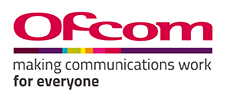A Content Management System (CMS) is a computer application that allows publishing, editing, modifying, organising, deleting and maintaining content from a central interface. The most famous open-source software programs for creating a website are WordPress and Joomla. Each of these has their own advantages and disadvantages, but which one is the best?
Content management system: WordPress
WordPress was released in 2003 by Matt Mullenweg. There are currently 74.6 million websites running on this platform. It`s a free platform and is best used for simple websites, such as everyday blogging and news websites. WordPress comes with a 5 min install. It has an extremely easy to use interface and this makes it easy for a new user to get started with their websites. WordPress allows users to change their site`s appearance using themes. There are more than 3,000 free themes and more than 36,000 free plugins, making WordPress very popular. WordPress has a strong community of users and you can find help on official support forums, docs, and handbooks.
Advantages:
• User Friendly – Technical experience is not necessary;
• SEO Integration – Plenty of SEO plugins to help you optimise the content;
• Responsive Site – Your content is consistent and usable on all devices;
• Great support – WordPress has every answer to every issue that you may encounter when using the platform.
Disadvantages:
• Security – WordPress is a target for hackers and prone to attacks;
• Update – WordPress releases system updates that are good for itself, but their updates might harm rather than improve your website;
• Speed – WordPress websites contain lots of generic codes unnecessary for every website, so the loading of the website become slower.
Content management system: Joomla
Joomla was created in 2005 from Mambo. There are currently 2.8 million websites run by Joomla. It`s also a free platform which supports eCommerce, social networking and more. Joomla installation may not look as quick as WordPress, but does not exceed 10 min. It is considered as more advanced than WordPress in the usage. There are less options when it comes to free customisation here; more than 1000 free themes and more than 5000 free plugins. Joomla, just like WordPress has a large community. There is a major documentation on the Joomla website, which is valuable resource for beginners.
Advantages:
• Powerful – The interface is powerful, but also user-friendly;
• eCommerce – Available extensions for eCommerce, which allows to manage your products and content all in one place;
• Developer Community – Advantage of having a stronger community;
• Extensions – Five varied category of extensions for improving the site content (plugins, components, modules, templates and languages).
Disadvantages:
• Small Module Marketplace – Joomla has much more limited marketplace for additional modules and add-ons than WordPress;
• Plugins Compatibility – There may occur frustrating compatibility issues between some of the plugins.
Source by Maria Williams






